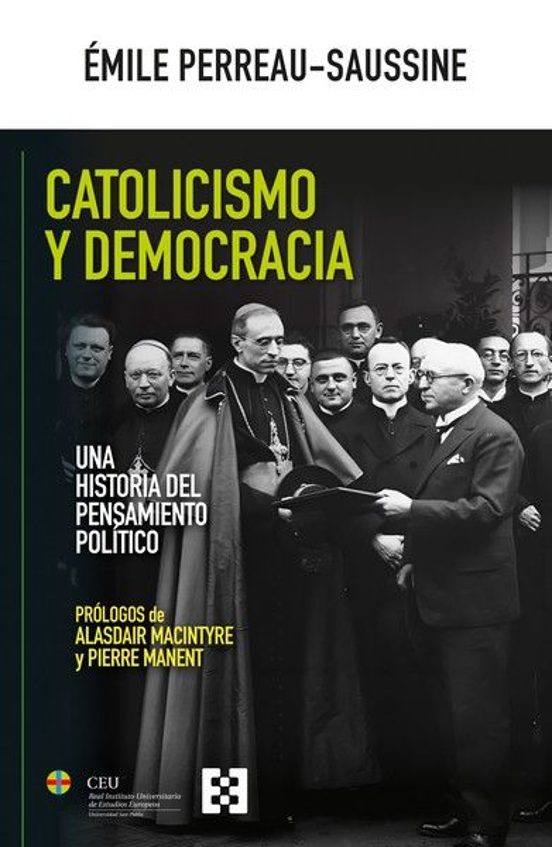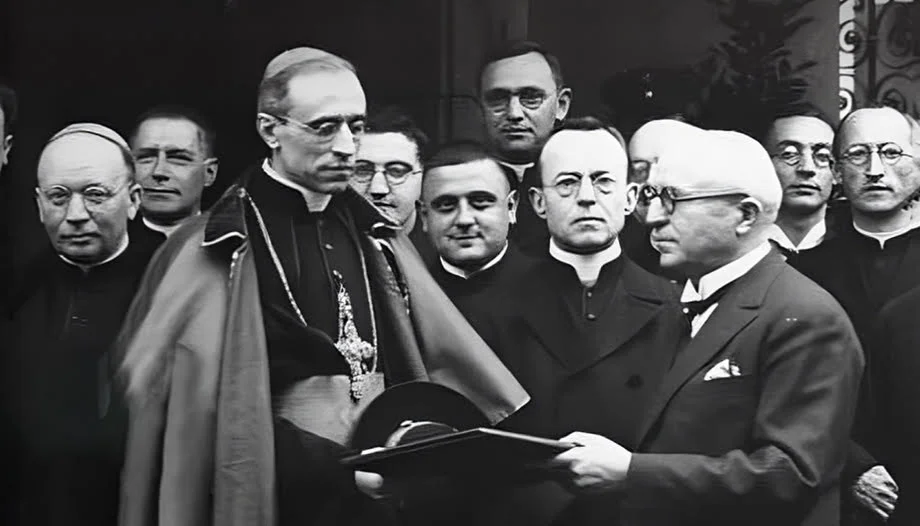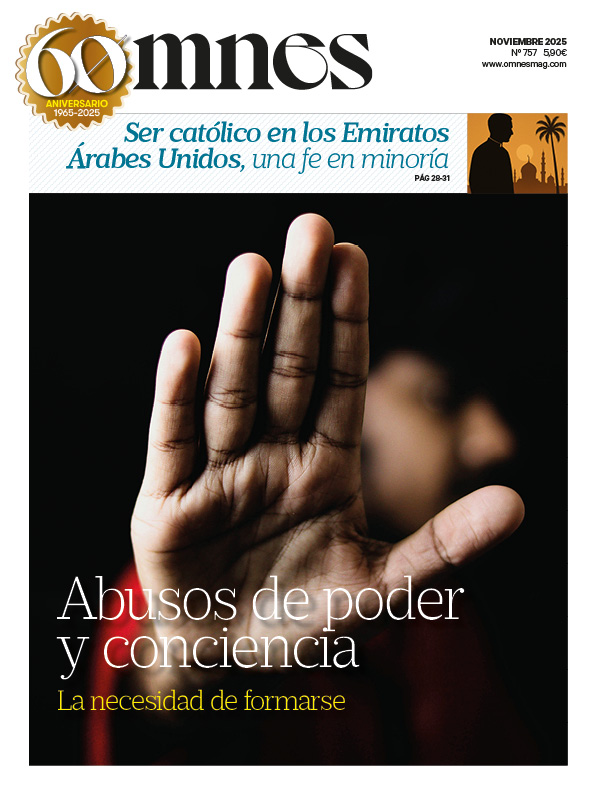Émile Perreau-Saussine (1972-2010) was successively Professor of Politics and International Studies at the University of Cambridge and at the Institute of Political Studies in Paris (Sciences Po). His premature death was much mourned, as his academic career and his publications augured great advances in the human sciences.
The work we now present, Catholicism and Democracy, aims to be a true synthesis of the history of political thought along the lines of the philosophy of political history in the noblest and broadest sense. At the end of this brief review the reader will understand why we do not offer from the outset a more overflowing conclusion.
Undoubtedly, the approach of this work is absolutely up to date, since the relationship between freedom and democracy and between religion and democracy from the French Revolution to the present day.
Logically, while reading this interesting lesson in history, law and theology, we cannot but thank the author for his clarity of ideas to explain certain moments in history, such as the rupture of the Ancien Régime, the ancient union of the throne and the altar and to take the example of the separation of Church and State from the mutual respect and full acceptance of the principle of religious freedom and the principle of political freedom of ordinary Christians who are those who build, with their fellow citizens, the democratic society of the West.
We are fully aware that the Syllabus of Blessed Pius IX (p. 139) was a clear demonstration of how the social doctrine of the Church requires constant updating, since the inculturation of the Church in every moment of history always requires discovering what is essential and perennial and what is transitory and ephemeral.
Logically, our author, with great agility and simplicity, takes the opportunity to shed light on issues that for centuries were complex and complicated: “this is history and this is how we have told it”.
Freedom, democracy and religion: a historical approach
Just as there was a time when the confessionality of the State seemed fundamental for the Church to have freedom of action and the material means necessary to evangelize the Christian people and to energize it so that it would always be a good son of God and of society, so too came the time of the deconfessionalization of nations as democracy took hold and secularization advanced, and so, as the German saying goes: “the air of the city makes man free”.
Émile Perreau-Saussine, will focus his speech on the study and comparison of Vatican Council I and Vatican II, underlining the importance of the papacy in enlightening consciences and the capital of free action of ordinary Christians who must be, as Vatican II said, the “soul of earthly society”. In addition, our author will focus his research on France and recently: “France has combined political, religious and intellectual lives with an uncommon energy, giving the great events of its history a rare physiognomy” (p. 29).
After navigating problems such as the civil constitution of the clergy, the distrust of the enlightenment and the serious and complex problem of Jansenism, he will deal with Gallicanism: “The affirmation of the autonomy of the temporal did not imply religious secession. France remained in the universal Church and recognized the authority of the universal councils” (p. 68).
We will then focus on the French Revolution and its fundamental consequence: the radical separation of Church and State with which France faced the 20th century and the world wars (p. 176), bringing the faith to the interior of consciences and, at the same time, with an unprecedented deployment of religious orders and congregations in their missionary work, both in towns and cities and in mission territories and in the exercise of corporal and spiritual works of mercy that filled France with institutions that energized the life of the Church and of society.
At the same time, people looked to Rome for guidance for consciences in liberal society, in industrial development and in the social doctrine of the Church. Of course, science, industry and technology developed, but man needed God and the sacraments: “In a world in upheaval, the papacy manifested the permanence of a firm identity. In a world that was searching with difficulty for its organizing principle, the papacy appeared as the apex of a hierarchy, a stable and organized force” (p. 108).
Secularization, secularity and the role of the laity
Émile Perreau-Saussine will begin the second part of his book with a comparison between intolerant secularism and liberal secularism (p. 167). 167), to finish by studying the Second Vatican Council and giving the Christian laity the true weight of the Church in the face of the third millennium of Christianity that we are beginning, not only by the universal call to holiness expressed in the Dogmatic Constitution “Lumen Gentium” (n. 11), but above all by the constitution “Gaudium et spes”, in which he calls on the laity to enlighten the world from within (n.43).Logically, in order to do so, they had to begin by overcoming atheism based on a scientistic rationalism” (p. 175).
It is very interesting that Émile Perreau-Saussine devotes an ample space in his book to study a canon of the 1983 Code of Canon Law, specifically can. 285, § 3, which, by the way, was not in the 1917 Code: “clerics are forbidden to accept those public offices which involve participation in the exercise of civil authority”. In this way it is clear that the action of Catholic clerics in public life should really give way to the laity and avoid all clericalism (p. 233). A little later he will affirm: “The Church became less clerical because it no longer felt the need to oppose the Catholicism of the clergy to lay corruption” (p. 245). Very interesting is our author's defense of the freedom of teaching (p. 253) and even the affirmation: “The State must serve God in its own way: by legislating with justice for the common good” (p. 254).
Catholicism and democracy









